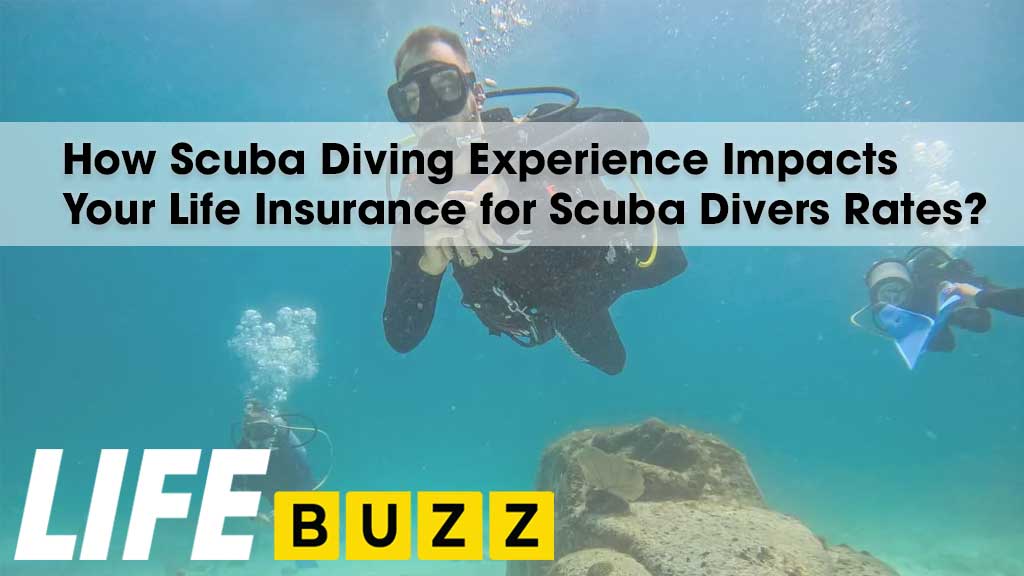Scuba diving, an exhilarating activity that allows us to explore the underwater world, comes with inherent risks. These risks, while often managed with proper training and equipment, can influence various aspects of our lives, including the cost of life insurance. Understanding how scuba diving impacts life insurance premiums is crucial for divers and those considering taking up the sport. This article delves into the factors insurance companies consider, the potential impact on premiums, and what divers can do to secure affordable coverage.
Understanding the Risks and Insurance Perspective
Life insurance companies assess risk to determine premiums. Activities considered high-risk, like scuba diving, often lead to higher premiums or, in some cases, policy exclusions. The specific risks associated with scuba diving that concern insurers include:
- Decompression sickness (the bends)
- Drowning
- Equipment malfunction
- Marine animal encounters
- Pre-existing health conditions exacerbated by diving
The depth of dives, frequency, and location all contribute to the overall risk profile. Commercial divers or those diving in challenging environments (e.g., caves, wrecks) face greater scrutiny.
How Scuba Diving Impacts Life Insurance Premiums
Insurers typically ask about participation in hazardous activities, including scuba diving, on their application forms. Honest disclosure is vital; withholding information can invalidate the policy. The impact on premiums can vary:
- Increased Premiums: The most common outcome is a higher premium to reflect the increased risk. The specific increase depends on the individual’s diving habits and overall health.
- Policy Exclusions: Some policies may exclude coverage for death or injury directly related to scuba diving. This means that if a diver dies while diving, the policy may not pay out.
- Policy Denial: In rare cases, particularly with pre-existing health conditions or extremely risky diving habits, an application may be denied altogether.
Factoid: The average cost of life insurance for a scuba diver can be 25-50% higher than for a non-diver, depending on the factors mentioned above.
Factors Influencing Insurance Decisions
Several factors influence how insurance companies assess the risk associated with scuba diving:
Diving Certification and Experience
Holding certifications from reputable organizations like PADI, SSI, or NAUI demonstrates competence and adherence to safety standards. More experienced divers with advanced certifications may be viewed more favorably;
Diving Frequency and Depth
The more frequently someone dives and the deeper they go, the higher the perceived risk. Diving beyond recreational limits significantly increases the risk of decompression sickness and other complications.
Location of Dives
Diving in remote locations, caves, wrecks, or strong currents presents greater challenges and risks compared to diving in calm, well-charted waters.
Health and Medical History
Pre-existing health conditions, such as heart problems, lung issues, or diabetes, can increase the risk of diving-related incidents and influence insurance decisions.
Securing Affordable Life Insurance as a Scuba Diver
While scuba diving can impact life insurance premiums, divers can take steps to secure affordable coverage:
- Shop Around: Compare quotes from multiple insurance companies. Some companies are more lenient with divers than others.
- Maintain Good Health: A healthy lifestyle can offset some of the perceived risk associated with diving.
- Choose a Reputable Insurance Broker: A broker specializing in high-risk activities can help find suitable coverage.
- Consider a Term Life Policy: Term life insurance is generally more affordable than whole life insurance.
- Be Honest on the Application: Full disclosure is essential to avoid policy invalidation.
FAQ: Life Insurance and Scuba Diving
Q: Will my life insurance policy pay out if I die while scuba diving?
A: It depends on the policy. Some policies may exclude coverage for diving-related deaths, while others may pay out as long as the policyholder disclosed their diving activities during the application process and paid the appropriate premiums.
Q: Do I need to tell my insurance company if I start scuba diving after obtaining a policy?
A: Yes, it’s crucial to inform your insurance company of any changes in your lifestyle, including starting scuba diving, as it could affect your coverage.
Q: What if I only dive occasionally? Does it still affect my premiums?
A: Even occasional diving can impact premiums, although the increase may be less significant than for frequent divers. It’s best to disclose the activity regardless of frequency.
Q: What documentation should I provide to the insurance company regarding my diving activities?
A: You may be asked to provide proof of certification, diving logs, and details about your diving habits, such as frequency, depth, and location.
Q: Can I get life insurance if I have a pre-existing medical condition and scuba dive?
A: It may be more challenging, but not impossible. Some insurance companies specialize in covering individuals with pre-existing conditions. Be prepared to provide detailed medical information and potentially face higher premiums.

